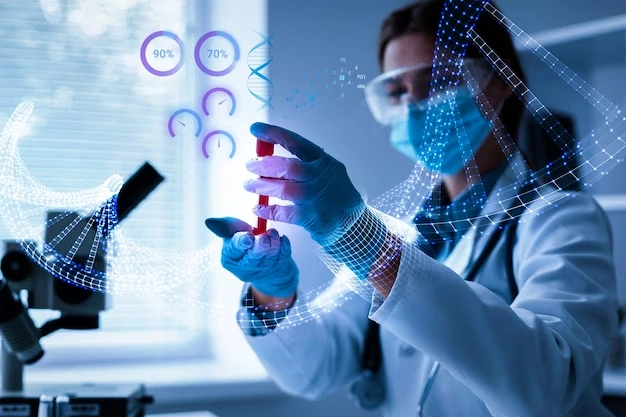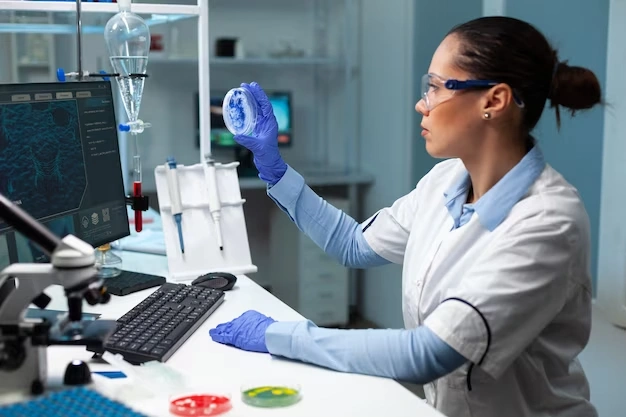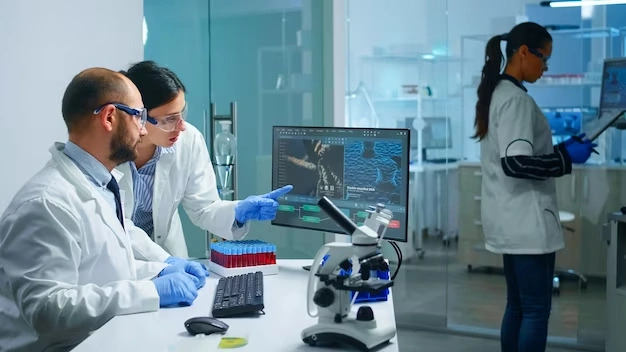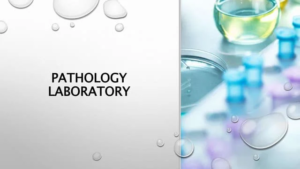Pathology labs play a crucial role in modern healthcare, providing vital information for diagnosing and monitoring medical conditions. These labs analyze various biological samples, such as blood, urine, tissues, and body fluids, to uncover valuable insights into a patient’s health. Over the years, pathology lab technology has undergone significant advancements, transforming the landscape of medical diagnostics.
In this blog, we will explore the cutting-edge technologies and innovations that are revolutionizing pathology labs and enhancing their ability to provide accurate and timely diagnostic information. Join us on this journey as we delve into the groundbreaking advancements that are shaping the future of medical diagnostics and patient care.
- Automation and Robotics: Enhancing Efficiency and Accuracy
One of the most significant advancements in pathology lab technology is the integration of automation and robotics. These technologies streamline laboratory processes, reducing human errors and enhancing efficiency. Automated systems can handle sample preparation, testing, and result analysis, allowing for faster turnaround times and increased test volumes.
Robotics, on the other hand, can perform repetitive tasks with precision, ensuring consistent and reliable results. By minimizing manual interventions, pathology labs can deliver more accurate and timely diagnoses, ultimately benefiting patient care.
- Digital Pathology: Transforming the Way Slides are Analyzed
Digital pathology is a game-changer in the field of medical diagnostics. Instead of using traditional glass slides, digital pathology involves scanning these slides to create high-resolution digital images. These digital slides can be accessed and analyzed remotely, allowing pathologists to collaborate, share cases, and seek expert opinions from anywhere in the world.
This technology not only improves efficiency and productivity but also facilitates telepathology, making pathology expertise accessible to underserved regions and remote areas.
1. Next-Generation Sequencing (NGS): Unraveling the Secrets of Genomics
Next-Generation Sequencing, or NGS, has revolutionized the field of genomics and its applications in pathology labs. NGS technology enables the rapid and cost-effective sequencing of large sections of DNA, providing unprecedented insights into a patient’s genetic makeup.
This technology is instrumental in diagnosing genetic disorders, identifying mutations, and understanding the genetic basis of complex diseases like cancer. NGS has also opened up new avenues for personalized medicine, where treatments can be tailored based on a patient’s genetic profile, leading to more effective and targeted therapies.
2. Point-of-Care Testing (POCT): Bringing Diagnostics to the Bedside
Point-of-Care Testing (POCT) is a technology that allows for diagnostic tests to be performed at or near the patient’s bedside, eliminating the need for sample transportation to a central lab.
This rapid testing enables immediate results, facilitating quick decision-making and timely interventions. POCT is especially valuable in emergency situations, critical care settings, and resource-limited environments where immediate diagnosis is essential for patient management. The availability of portable devices for POCT has transformed the way medical diagnostics are delivered, improving patient outcomes and healthcare accessibility.
3. Mass Spectrometry: Advancing Clinical Chemistry
Mass spectrometry is a powerful analytical technique used in clinical chemistry to identify and quantify molecules in biological samples. This technology has expanded the capabilities of pathology labs, allowing for more accurate and sensitive analysis of various biomarkers.
Mass spectrometry is instrumental in areas such as drug testing, therapeutic drug monitoring, and the diagnosis of metabolic disorders. Its high specificity and sensitivity have made it an invaluable tool in understanding disease mechanisms and optimizing patient treatment plans.
4. Artificial Intelligence (AI) in Pathology: Augmenting Diagnostic Accuracy
Artificial Intelligence (AI) has made significant strides in the field of pathology, especially in image analysis and interpretation. AI algorithms can be trained to analyze digital pathology images, helping pathologists detect and classify abnormalities more efficiently. AI-powered tools are increasingly used to assist in diagnosing diseases like cancer, where identifying subtle features in tissue samples can be challenging.
These AI-powered diagnostic tools are not meant to replace pathologists but rather to augment their expertise, leading to more accurate diagnoses and better patient outcomes.
- Molecular Diagnostics: Unveiling Disease Biomarkers
Molecular diagnostics is a branch of pathology that focuses on identifying disease-specific biomarkers at the molecular level.
This technology allows for early detection, precise diagnosis, and targeted therapies for various diseases, including infectious diseases, cancer, and genetic disorders. Molecular diagnostics has significantly impacted patient care, enabling personalized treatment plans based on a patient’s unique molecular profile.
- Liquid Biopsies: A Non-Invasive Approach to Cancer Detection
Liquid biopsies are a groundbreaking advancement in cancer diagnostics. Instead of traditional tissue biopsies, liquid biopsies involve analyzing circulating tumor cells, cell-free DNA, and other biomarkers present in blood samples. This non-invasive approach provides valuable information about the presence and progression of cancer, enabling early detection and monitoring of treatment response. Liquid biopsies have the potential to revolutionize cancer care by providing a less invasive and more comprehensive way to diagnose and manage cancer patients.
- Lab Information Systems (LIS): Streamlining Pathology Workflow
Lab Information Systems (LIS) are software applications designed to manage and streamline the operations of pathology labs. These systems help in tracking samples, managing data, and automating reporting processes. LIS integration with other hospital systems facilitates seamless information sharing, enhancing communication between healthcare professionals and improving patient care coordination. By optimizing workflow and data management, LIS contributes to the overall efficiency and effectiveness of pathology labs.
- The Future of Pathology Lab Technology: Advancing Precision Medicine
The future of pathology lab technology holds great promise for advancing precision medicine. As genomics and personalized medicine continue to evolve, pathology labs will play an increasingly vital role in tailoring treatment plans to individual patients. AI-powered diagnostic tools will continue to be refined and integrated into pathology practice, further enhancing diagnostic accuracy and efficiency.
Additionally, advancements in lab-on-a-chip technology, microfluidics, and nanotechnology are likely to revolutionize point-of-care testing and enable more rapid and portable diagnostic solutions
Pathology lab technology has come a long way, reshaping medical diagnostics and patient care. From automation and robotics to digital pathology and NGS, these advancements have revolutionized the field of pathology and enhanced our understanding of diseases. With ongoing innovations in AI, molecular diagnostics, and liquid biopsies, the future of pathology promises even greater strides towards personalized and precision medicine.
As technology continues to evolve, pathology labs will remain at the forefront of medical advancements, driving improvements in patient care and overall health outcomes.
At the heart of these groundbreaking advancements are dedicated pathologists and medical technologists who employ their expertise to harness the power of technology for the benefit of patients. As the healthcare landscape continues to evolve, pathology labs will continue to play a pivotal role in unraveling the mysteries of diseases and advancing medical diagnostics to new heights.
Unlocking medical mysteries with precision and accuracy, discover the excellence of our Pathology Lab. Offering cutting-edge technology and expert analysis, our lab provides comprehensive diagnostic insights for better patient care. Trust in our expertise for reliable results and compassionate service. Experience the future of medical diagnostics at our Pathology Lab today.
Experience advanced diagnostics and accurate results at our Pathology Lab in Balewadi. Our state-of-the-art facility and expert pathologists ensure precise and timely medical insights for better patient care. Trust in our commitment to excellence and personalized service. Discover the difference at our Pathology Lab in Balewadi today.




